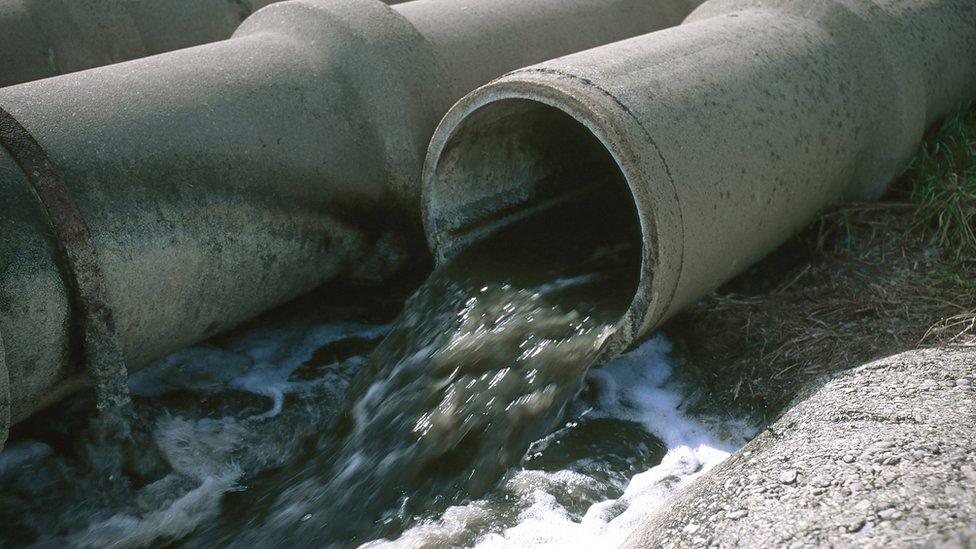Weston beach: Swimmers advised to avoid the sea
- Published
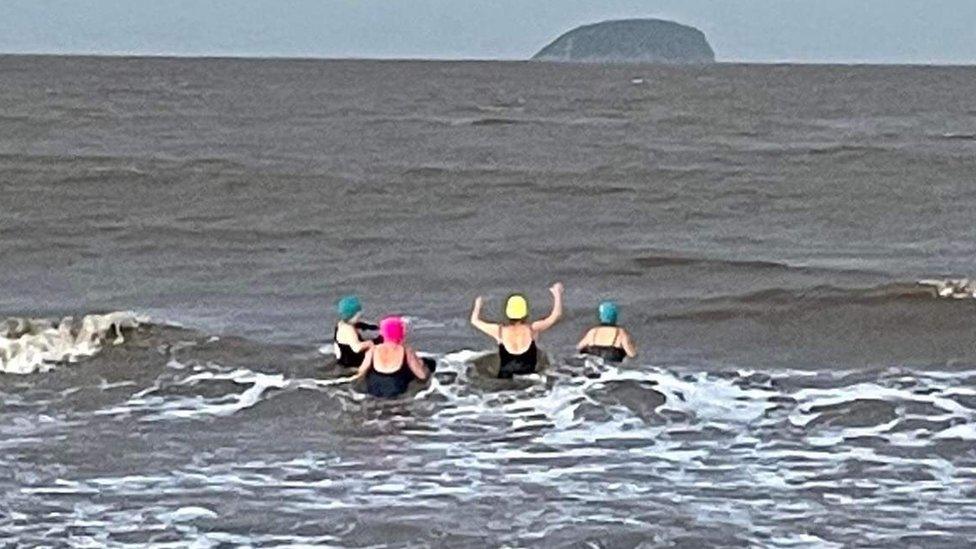
Swimming groups say they will continue to take to the water in Weston-Super-Mare
The Environment Agency is advising people not to swim at Weston-super-Mare beach after the water quality was rated as "poor".
Open water swimming groups said they would not be put off by the warning.
In 2019 the water quality was classified as "sufficient" but samples taken last summer show the level has deteriorated.
John Penrose, MP for Weston-Super-Mare said a clean beach was essential to the resort.
He called for urgent action by the Environment Agency and Wessex Water.
"Weston's beach is one of the jewels in our crown and local people and visitors want to know it's as safe as possible," said Mr Penrose.
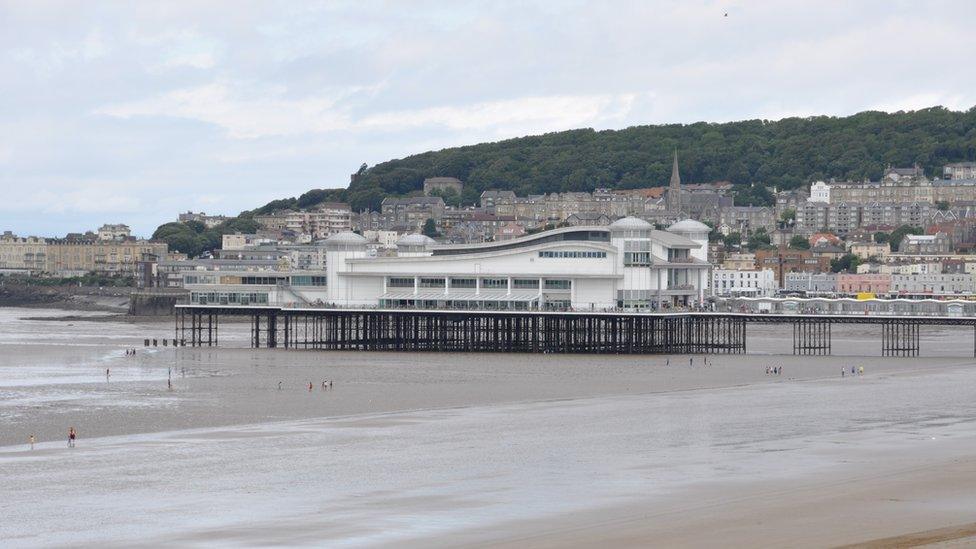
Thousands of visitors flock to the North Somerset resort every year
North Somerset Council said water readings can vary over the course of a day due to weather, pollution from agricultural and urban sources, and storm water overflows.
Councillor Mike Bell, executive member for public health, said: "Our environmental teams will be looking at all the factors that can impact water quality and working with partners to take action to deliver improvements. However, we cannot do this on our own and have been lobbying the government to improve protection of our coastline."
In peak season Weston-Super-Mare attracts up to 100,000 visitors a day. The council is now planning to put up real time signage before the summer season to alert swimmers to the daily changes in water quality.
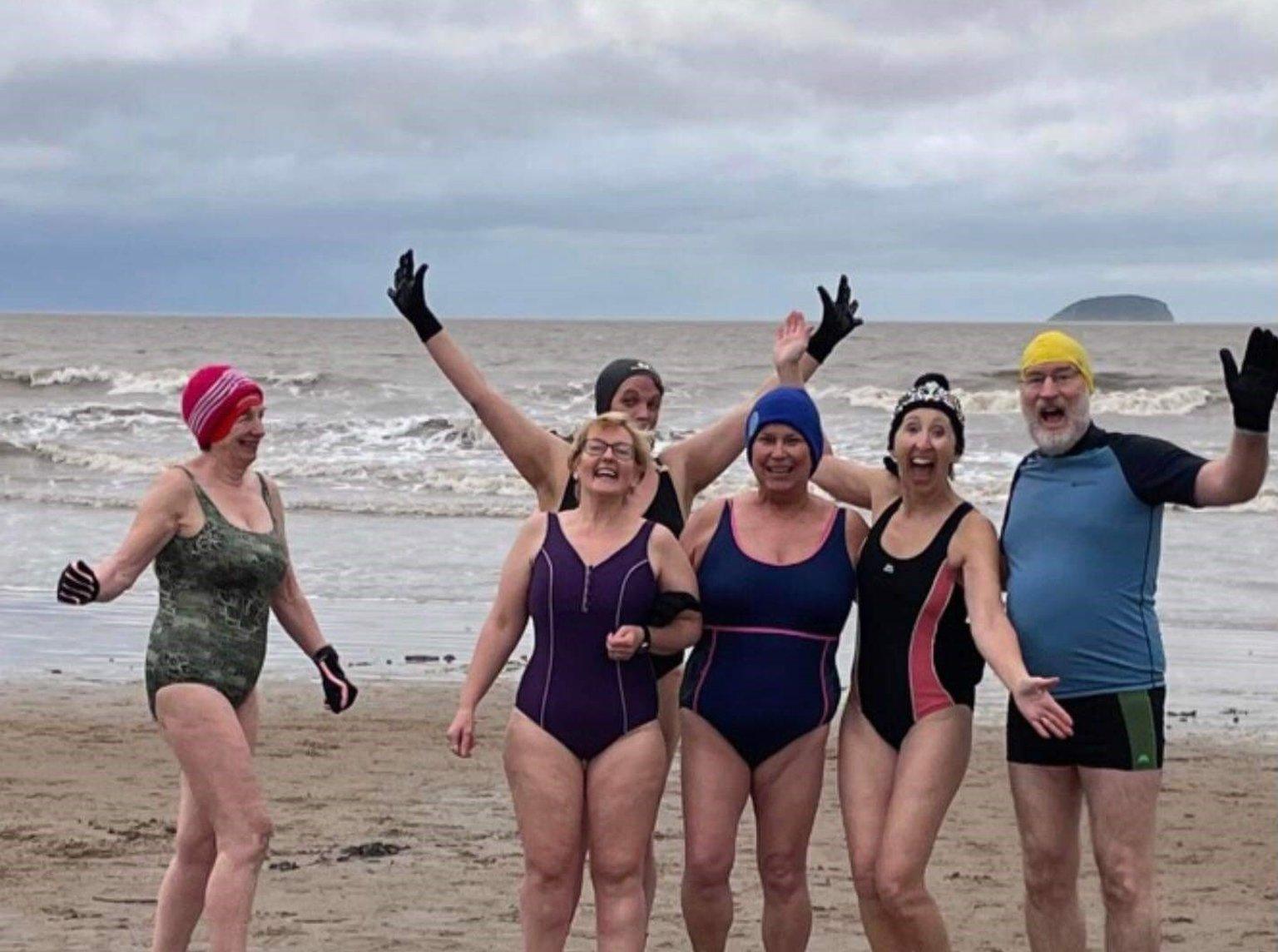
The Supermares and Mudlarks swimming groups say the "poor" rating will not stop them swimming in coastal waters
"There's a big group of us who swim down by the pier every day," said Jan Doyle. "None of us has got ill yet, though we don't put our heads under the water! We think the benefits outweigh the negatives."
She said a Surfers Against Sewage app used by the group to warn them of sewage along the coast at Weston-Super-Mare, sent alerts almost every week.
In recent years Wessex Water has invested millions of pounds to upgrade the treatment of sewage in Weston before it is returned into the environment.
Mr Penrose. who has been Conservative MP for Weston-Super-Mare since 2005, commented that while the number of storm overflows had been lower last year, the remaining problems came from runoff from farms into local waterways, broken pipes in the town's Victorian sewage system and droppings of seabirds roosting on the beach at low tide.
He said the Environment Agency and Wessex Water needed to keep working on finding solutions.

Follow BBC West on Facebook, external, Twitter, external and Instagram, external. Send your story ideas to: bristol@bbc.co.uk , external
Related topics
- Published19 January 2022
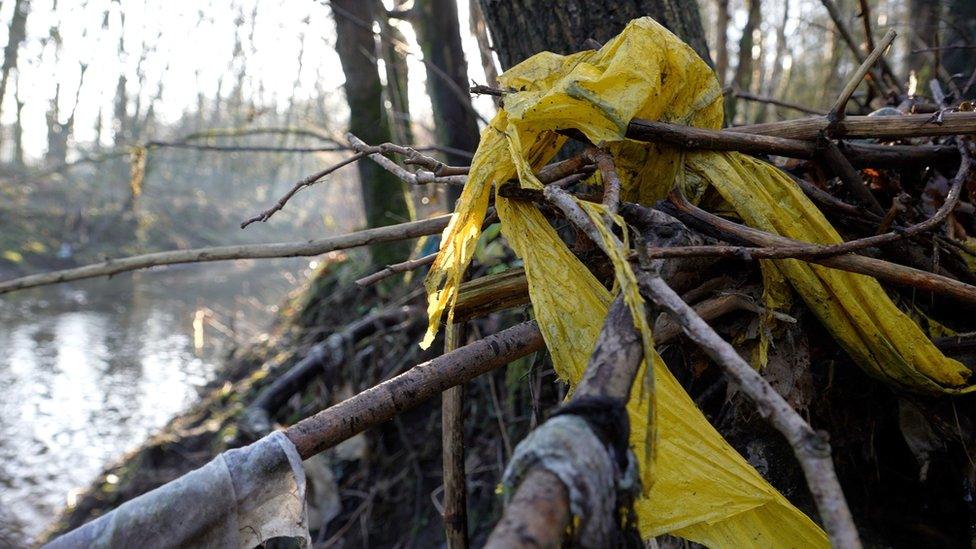
- Published24 December 2021
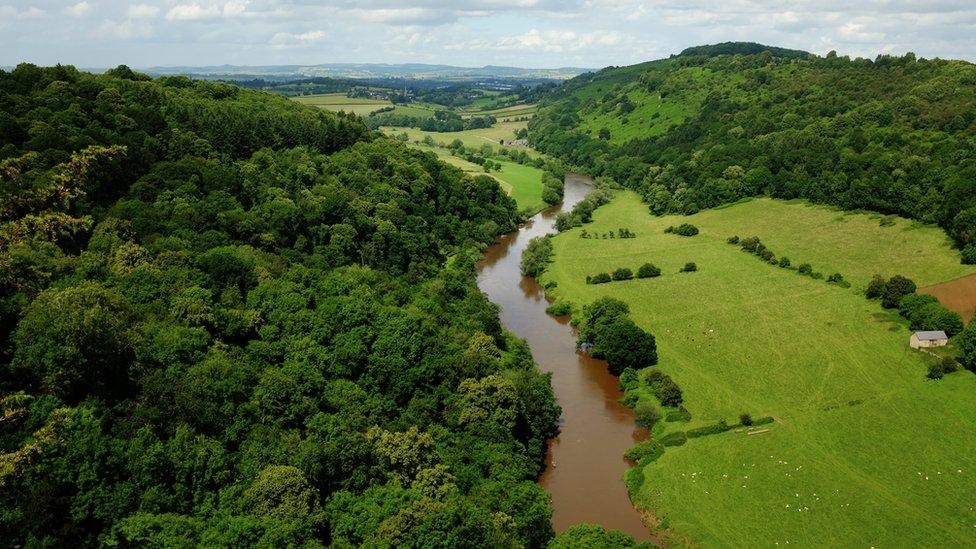
- Published25 November 2021
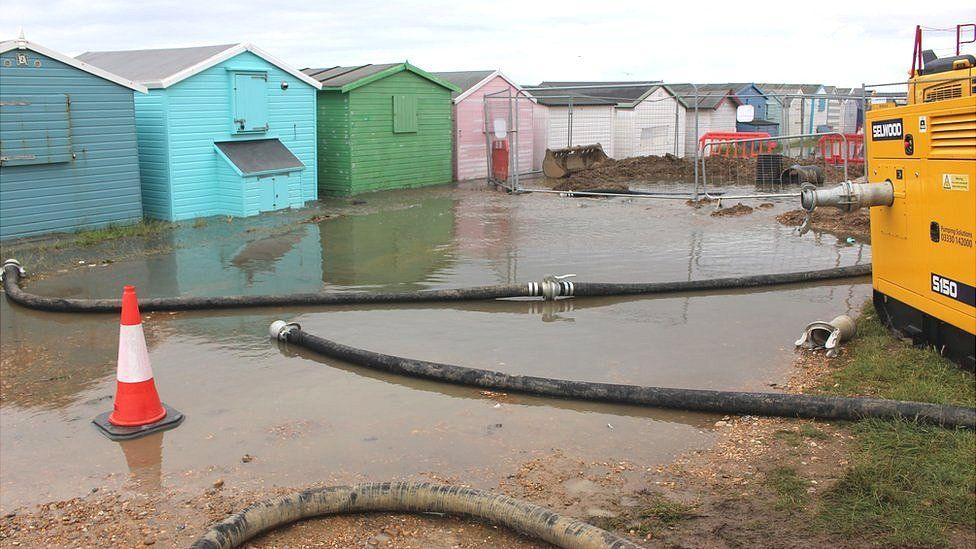
- Published26 October 2021
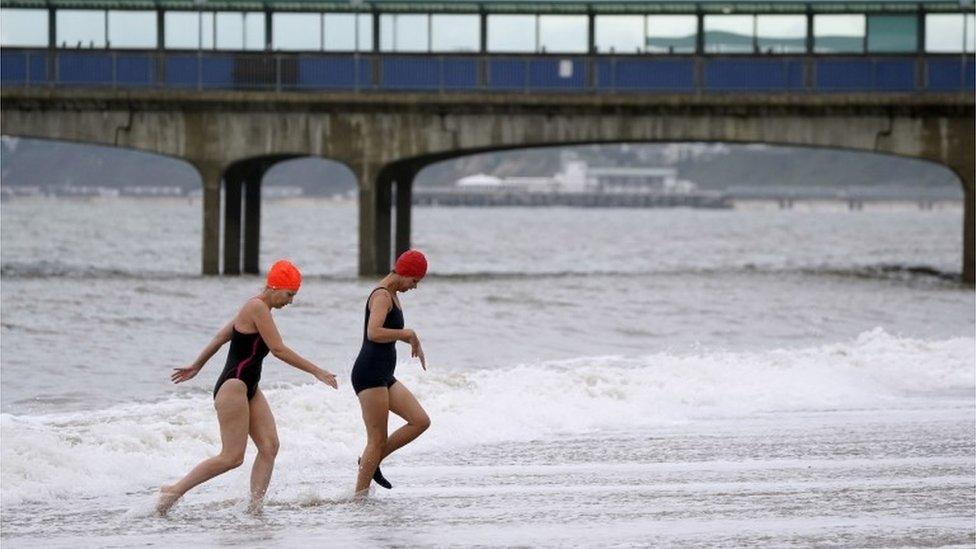
- Published20 July 2021
